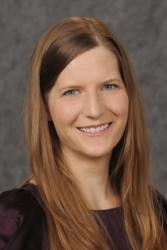The recent evaluation of the Tennessee pre-K program by Kelley Durkin and colleagues found that by the end of sixth grade, children who attended the public statewide pre-K program in Tennessee actually did worse on academic and behavioral outcomes than those who had not attended pre-K. Other less rigorous, quasi-experimental longitudinal studies showed substantial gains in skills, especially basic reading and math during pre-K, but also found that those gains partially or completely diminished during kindergarten relative to skills attained by children who did not attend pre-K. This finding—called either “fade out” or “catch up”—is surprising given that pre-K teachers now spend more time teaching literacy skills than any other subject. In the aggregate, these studies raise many questions about how to best design early education to secure a strong return on investment. Durkin and colleagues end with this prescient conclusion in their evaluation:
If the programs we have created do not produce the desired effects, the findings themselves should not be dismissed simply because they were unanticipated and unwelcome. Rather, they should stimulate creative research into both policies and practices with potential to have the desired effects.
Unpacking these arguments, it is critical to consider what counts as a quality classroom in pre-K. The Tennessee pre-K classrooms met the structural quality characteristics (for example, number of students in the class and teacher’s level of education). Yet, many studies of pre-K classroom observations report that the learning experiences are predominantly marked by large group activities with passive children learning in teacher-led instruction. Evaluation of the North Carolina pre-K program found that time spent in large group activities was the largest negative predictor of gains in important skills such as language, math, and executive functioning. That is, more time in large group activities is counterproductive to strong outcomes. In fact, this type of teaching might actually rob children of agency and hence from the types of learning experiences related to long-term school success.
The extant research strongly suggests that young children learn best (indeed all of us do) when the learning is active, engaging, meaningful, iterative, socially interactive, and joyful—when it is playful. At least one state, New Hampshire, is using the latest data to legislate that all kindergarten programs be play-based. By extension, pre-K classrooms should also adopt a playful learning approach to align practices with how children learn best.
The second lesson brought forward by the Tennessee study concerns the outcomes currently used to judge the effectiveness of pre-K programs. This issue concerns what children should learn. The basic skills of reading and mathematics are mastered quickly, even by children who do not attend pre-K, thus accounting for the now well-established pre-K “fade out” or “catch-up” effects. Contrary to the assertions of some, science does not suggest that early skills learning begets later skills learning—not when they are basic skills in reading and math such as rote decoding, phonemic awareness, and counting skills.
For example, David Grissmer demonstrated that “Together, attention, fine motor skills, and general knowledge are much stronger overall predictors of later math, reading, and science scores than early math and reading scores alone.” Indeed, studies find that early language or executive functioning skills at age four, but not early reading and math skills, positively predicted the rate of learning in grade school. Finally, a study in New Zealand demonstrated that by age 10, early and late readers were indistinguishable from one another. Together, these and a host of other studies of early learning strongly suggest that the teaching of targeted basic skills in the early years is unwarranted and will not facilitate the development of those more foundational skills of attention, social development, working memory, and persistence.
This suggests that a well-curated classroom in which students are exposed to books, blocks, and puzzles and in which guided play is supported will best lead to successful outcomes.
Well-curated classrooms that encourage reading, telling stories, and asking questions support language and literacy growth, and playing with blocks, measurement activities, and puzzles, among many other games prepares children for STEM (science, technology, engineering, and math) learning.
The Tennessee outcomes shined a light on the ways in which we are failing our youngest children by trying to hurry their childhood. Without educational investment in a suite of skills that include collaboration (building relationships), communication (language), content (reading, math, and approaches to learning), critical thinking, creative innovation (curiosity and exploration), and confidence (learning from failure and perseverance)—the 6Cs—young children will not be prepared for formal school. Children who learn these foundational 6C skills will also be better prepared for learning later in life. This suggests that a well-curated classroom in which students are exposed to books, blocks, and puzzles and in which guided play is supported will best lead to successful outcomes. Importantly, a custodial environment in which free play is the only pedagogy will not support strong outcomes for children.
We need to move away from pre-K (as a grade below kindergarten) and back to preschool, meaning the experiences that will benefit children before they attend formal school. We know how to do that, and when we put the appropriate curricula and pedagogy in place, children will thrive. This may even mean revisiting where preschool programs are housed. Perhaps if we move preschool out of departments of education, we will adopt more age-appropriate expectations and practices. Such a move will not only support foundations for learning but will have the additional benefit of helping working parents who gain from high-quality environments for their children and from a calendar that is not restricted to a formal school program.










Commentary
Making pre-K work: Lessons from the Tennessee study
February 28, 2022